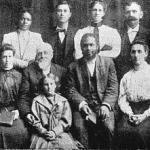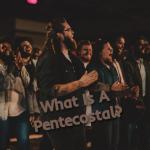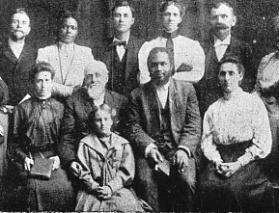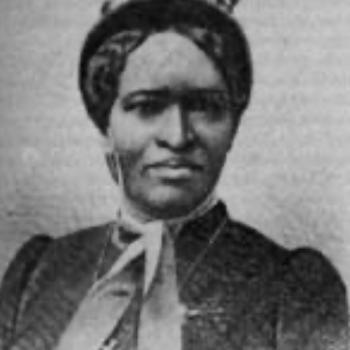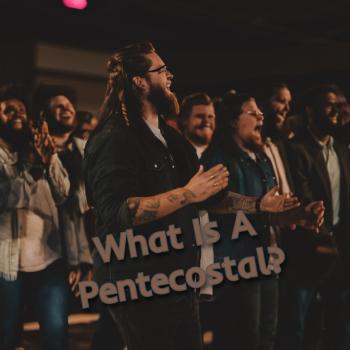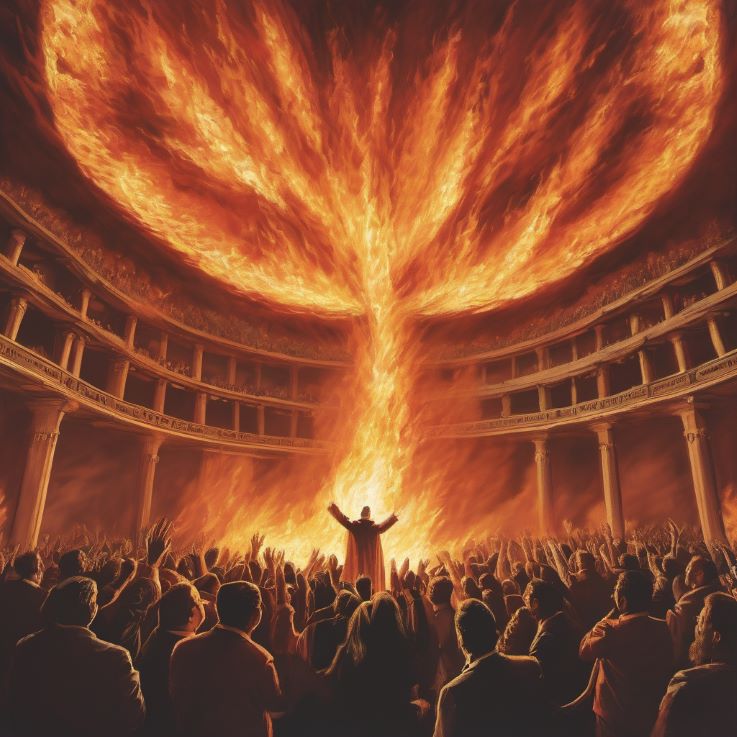
Pentecostalism, over the last century and into the 21st century, has been the fastest growing movement in Church history. While some are uncomfortable with the label Pentecostal, many hold to a continuationist position regarding the gifts of the Holy Spirit in operation today. At the heart of modern Pentecostalism has been a true embracing of the will of Jesus for his Church to be an empowered people living a Spirit-filled life.
Early Pentecostal Experience
For many years I was ashamed to associate myself with being Pentecostal. In part that was because I grew up with many of my non-Pentecostal friends acting as if I was weird for believing that people were actually speaking in tongues. Even among many of the Pentecostals I knew, it was strange to believe that healing, prophecy, or miracles were regular occurrences for modern times.
Most of the Church, in my experience, were functioning cessationists. Many of the Pentecostal churches were no exception. They believed in healing, but healing was rare and reduced to prayers that ended with “if it be thy will.” However, when my parents served as missionaries to Costa Rica for their small Pentecostal denomination from North Carolina, I was exposed for the first time to a pastor who believed in and operated in other gifts of the Spirit besides the typical speaking in tongues.
My pastor, Fernando Calvo, was praying for a woman who said she had cancer. As he was praying for her, she fell to the floor. As a 15 year old, I had no idea what was happening. I was completely shocked. He then started praying for her without touching her, simply putting his hand about four inches from her body. I watched as the lady, laying there on the floor, began to shake and convulse. Eventually her face turned blood red and she vomited out a green glob that had a horrendous smell to which I had never before been exposed.
I had no reference point for this moment in time. Sure, I had seen old time Pentecostal style worship with the pew jumping, holy dancing, shouting, and speaking in tongues. I actually deeply value those experiences and believe they were very genuine. But this experience was tremendously different. I, for the first time in my life, witnessed a deliverance and healing miracle.
While my father had demonstrated a Pentecostal fervor, he had not ever really pursued the miraculous. This lack of priority was not because he had some preconceived idea that miracles, signs, and wonders were not for today. Rather, he had been stifled early on in his faith. After receiving the baptism in the Holy Spirit, by his own account, he just couldn’t stop praying in tongues. Rather than discipling this moment in his life and helping him understand what was going on, some of the older Christians in his church told him he had a demon!
This shut my father down and for quite some time he would go to revival meetings and seek deliverance. Eventually my father showed up at a Pentecostal meeting where the woman leading it had a special gifting in deliverance. My father approached her and told her his story. She simply smiled and assured this young believer that he wasn’t possessed, but, instead, was quite filled with the Holy Spirit. She instructed no one to pray for him that night and instead she prioritized him experiencing God afresh. From that point forward my father was an unapologetic Pentecostal believer.
My memories of my father include him praying for hours in tongues and crying out to God for direction for his life. When he started discipling the young pastor, Fernando, in Costa Rica who had demonstrated healing and deliverance, there was an intentional, Pentecostal priority. As a young believer myself and my combined experiences, I realized that the Spirit-filled life was what I desired and wanted, but I, personally, wasn’t having a Pentecostal experience.
If You Can’t Join Them, Leave Them
In 1986 I found myself in an English speaking youth group in Costa Rica that was mostly evangelical and, like many youth groups, focused part time on Jesus and fulltime on socializing and dating. I had grown tired of the youth group and, like most teenagers, I just decided that church was no longer my priority. There were other places and people I could socialize with and, well, lots of other girls I could date (not that I dated much). I just stopped going to youth group and I only went to church with my parents because, well, that is what we did.
During this time is when I was traveling with my Costa Rican pastor and my dad, mainly out of obedience to my dad. I would go into the jungles of Costa Rica where they would minister to very rural congregations. For me it was fond memories and constant demonstrations of Pentecostalism at its best. The gifts of the Spirit were in operation and it was a norm for me to see and experience this Pentecostal priority. At the same time, I, personally, was not participating, but hanging on the fringe, watching and waiting to go home. While these trips were not often, they were definitely influential.
By Spring of 1987 I had decided that I had enough of going to clubs with friends, running the streets of San Jose, and living a double life. I wasn’t doing anything sinful, just nothing spiritual. I had become a dry Christian with no real priorities that involved Jesus or the Holy Spirit.
It’s Not Them, It’s Me
I grew tired of being lukewarm. I started to hunger for the things of the Spirit. I loved Jesus and I loved Christians. I just didn’t enjoy being involved in dead Christianity. It seemed like an oxymoron to me. Jesus clearly stated that if we “hunger and thirst for righteousness” we would be filled. I was hungry. I was hungry for a deeper commitment to God and a deeper commitment to the things of the Spirit.
In March 1987, shortly before my eighteenth birthday, the televangelist Jimmy Swaggart came to Costa Rica for one of his large, evangelistic meetings. Because my dad was a missionary in the country and he had connections with the Assemblies of God, I was able to be close to the stage during the meetings in the old soccer stadium. I remember this hunger just growing stronger as I watched amazing worship, experienced the power of the Holy Spirit moving the hearts of men and women, and seeing people give their lives to Jesus for the first time.
As was his tradition with his meetings, Swaggart always had a follow-up meeting that was a Holy Ghost Rally. He did not lead these himself, but had someone associated with his international ministry that led these post-conference campaigns. I was determined to attend and I was determined to have an experience of being filled with the Holy Spirit.
Since this was a Pentecostal meeting and the meeting was being held at an Assembly of God church, the baptism of the Holy Spirit was taught with a traditional view that the experience would include speaking in tongues. While I have differing views on the doctrine of “initial evidence” as this tongue-talking experience is called, I followed along and, at the time, I had this expectation as well. (Later I will write an article about “initial evidence” and my views, but for pivotal moment in my life, let’s just say I was all-in.)
The preacher said, “Just like you can’t speak in English and Spanish at the same time, you can’t speak in Spanish and tongues at the same time.” His instructions included that we were going to start praising God in our native language and then at a certain point we were going to stop speaking in that language and start speaking in a heavenly language.
And that is exactly what happened to me. I was baptized in the Holy Spirit and I spoke in tongues. I didn’t jump any pews, I didn’t catch on fire, and I didn’t hear a rushing wind. I was just so open to experiencing God in a deeper way that I just started speaking in tongues.
Just Like My Dad
I had my doubts about my experience. I just kept praying in tongues over the next few weeks. Not constantly like my dad, but definitely frequently. Sometimes I would doubt my experience and the Holy Spirit would have me speak in a different tongue or with a different speed. Sure, it was strange. I thought the entire thing was strange. But it is was pretty strange when Jesus stuck his fingers in the ears of a deaf and mute man and then spat on his tongue. The results weren’t weird though. The man was healed. And for me I was assured that I was filled with the Holy Spirit.
Unlike my dad’s early experience, I didn’t have the resistance. In fact, I was encouraged but those in my life (including my youth director). I was feeding this desire with everything I could and my parents were in full support of this new hunger for God I was demonstrating. At the time we had CBN on our cable. Every Sunday night I would stay up until 12 a.m. and I would watch two Christian programs, the Rock Church out of Virginia Beach, Virginia with Ann and John Jiminez, and John Osteen’s program. With the Jiminez, I was exposed to modern worship with a priority of the fire of the Holy Spirit being broadcast across the globe. With John Osteen, the father of televangelist Joel Osteen, I was being exposed to expository, in-depth teachings on faith, healing, and the Spirit-filled life.
John Osteen cut his teeth as a Southern Baptist preacher and was given the “left-foot of fellowship” when he had a Pentecostal experience. What I witnessed with Osteen though was the same priorities I would later see in many Southern Baptist churches, a specific pattern of the priority of the Word and the importance of evangelism. I guess you could say from an early stage I was being shaped to be a bapticostal, or what I would later understand to be an Empowered Evangelical (which I will write about another day). I had a desire to have the fire of the Holy Spirit while being grounded in the Word of God.
But Aren’t You Just Describing An Experience?
To that question I can say with conviction “Yes!” Yes, this was my experience. I admit that. I can (and later will) argue that Pentecostalism is an experience. So is salvation, water baptism, and communion. All of these Christian acts incorporate experiences and being a Christian is a long series of supernatural experiences.
In the near future I will write about why the Pentecostal experience is not only a biblical experience, but, in fact, it was and remains the priority of Jesus. If I may be so bold, being a Pentecostal believer was and remains the intention of Jesus for every believer, even if we dismiss what Jesus wants for each of us.
The Spirit Life Column
This editorial column will be dedicated to the deep dive of the Spirit-filled life, the Pentecostal life. While this introduction is largely a personal testimony, I can assure you that I have spent years and continue to prioritize grappling with the theological and biblical basis of Pentecostal, Charismatic, and Third-Wave theology.
This column will explore in detail many of the theological questions that both continuationists and cessationists have concerning Pentecostal theology and practices. For too long Pentecostals like myself left the theology to the traditional denominations and kept the experiences to ourselves. This is no longer acceptable. In fact, I will often introduce the readers to modern Pentecostal theologians who have answered many of their questions.
In addition to these editorials and articles, I plan to have a regular contribution titled Pentecostal Moments. These will involve looking at historical figures and events that have helped shape Pentecostal, Charismatic and Third-Wave movements; the good, the bad, and the ugly.
I am unapologetically Pentecostal. It took me 50 years and a doctoral degree to admit this. I am confident that if you hang with me and you invite the Holy Spirit to guide you into all truth, you will come out the other side with a better understanding of what it means to be Pentecostal and, hopefully, be more open to engaging in The Spirit Life.

